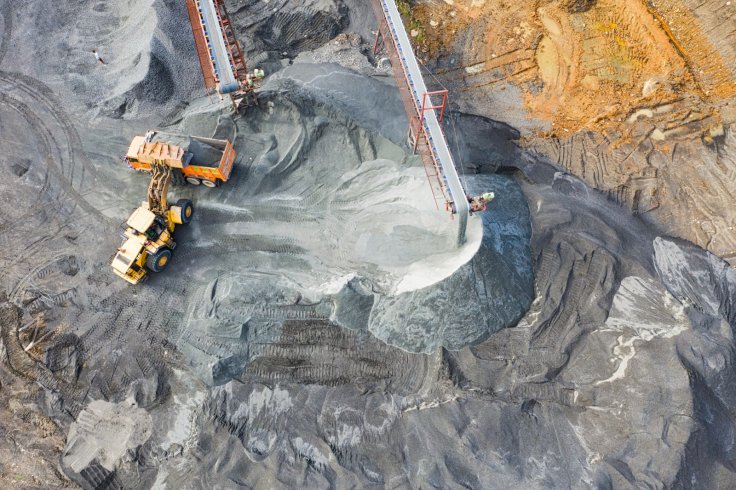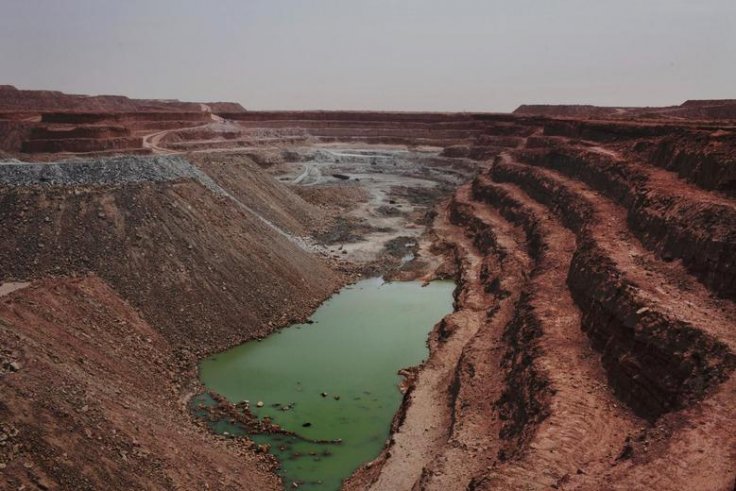
A rapidly warming world, advancements in technologies like AI and computing and an aggressive push towards practical climate change solutions has made the rare earth and alternative minerals industry very lucrative. Lithium, gold, zinc and uranium have become vaunted commodities, with countries rich in these mineral deposits receiving attention of both investors and regulators.
One such country is Kazakhstan which has one of the world's biggest concentration of these minerals. Many investors especially mining juniors, companies which invest in high stake early exploration of mineral deposits in a country, have attempted to make their fortunes in Kazakhstan but their hopes have been belied in a quagmire of inefficient practices, government corruption and Soviet era licenses.
The most recent example of the rot within the non-fuel mining sector in Kazakhstan is the case of Aurora Minerals Group, a company founded in 2015 by two ex-government civil service officers, Kaisar Kozhamuratov and Said Sultanov. It has been alleged that the two individuals pilfered millions of dollars of foreign investors' monies into their own pockets and used the government apparatus to browbeat the investors into leaving the country.
Kazakhstan's mining sector stands as a beacon of vast mineral wealth, positioning the country as a global leader in the production of critical resources. It is the world's premier uranium producer, accounting for nearly one-third of global output, and ranks among the top three in reserves of chromium and titanium. Furthermore, Kazakhstan holds prominent positions in the global rankings for copper and zinc (top five), as well as lead, iron ore, coal, and gold (top 10).
This rich endowment contributes significantly to the national economy, with the mining sector constituting approximately 17% of Kazakhstan's GDP. The allure for mining juniors lies not just in the abundant resources but also in the burgeoning demand from the technology sector, which voraciously consumes gold, titanium, and other rare earth metals for the development of circuits and batteries essential to powering AI technologies.
However, navigating the investment landscape in Kazakhstan's mining sector is fraught with complexities stemming from its Soviet legacy and current geopolitical challenges. The transition from a centrally controlled system, focused on maximizing output with little regard for environmental or social governance, to a market-oriented economy has been slow and uneven.
The persistence of Soviet-era licenses, awarded without competitive bidding and lacking in modern standards for environmental protection and workers' rights, creates a skewed playing field. This dichotomy is further complicated by the government's dominant role through its sovereign wealth fund, Samruk-Kazyna, in most mining enterprises, juxtaposing state interests with the need for foreign investment and modernization.

Amidst this backdrop, the sector's attractiveness to mining juniors is paradoxically intertwined with high policy risks, including the potential for corruption, bureaucratic inertia, and geopolitical instability, exacerbated by Russia's significant influence in the region. Despite these challenges, the strategic importance of Kazakhstan's mineral resources, particularly to the tech industry's insatiable demand for critical metals, makes it a compelling, albeit risky, frontier for junior miners.
As the global economy increasingly pivots towards sustainable and technologically advanced solutions, Kazakhstan's mineral wealth positions it as a critical player, necessitating a careful balance between leveraging its natural assets and navigating the complexities of its regulatory and geopolitical landscape.
In the analysis of geopolitical and economic dynamics, one often overlooks a critical, albeit subtle, dimension: xenophobia. This latent aversion towards foreigners, though not overtly manifest, significantly influences business operations and investment climates, particularly in sectors as pivotal as mining. Illustrative of this phenomenon are two instances related to the mining sector in Kazakhstan, a region known not just for its vast mineral wealth but also for a complex interplay of nationalistic policies and foreign investment dynamics.
Frontier Mining serves as a case in point. Established in the 1990s by Brian Savage and incorporated in the US, Frontier Mining was listed on the London Stock Exchange's Alternative Investment Market (AIM). As a "junior" mining entity, it embarked on the high-risk venture of exploring and developing mineral deposits, a task shirked by larger conglomerates due to the inherent geological uncertainties.
Despite facing formidable challenges in Kazakhstan between 2004 and 2011, Frontier Mining witnessed a notable turnaround post-2011, following Savage's replacement by Erlan Sagadiev, a local Kazakh. Sagadiev's leadership, marked by the hiring of ethnic Kazakhs, coincided with a mysterious easing of previously stringent government regulations that had hampered the company's progress. This shift underscores the non-technical barriers foreign enterprises often encounter, hinting at a preferential bias towards domestic leadership.
Further compounding the xenophobic landscape is the introduction of the revised Subsoil and Subsoil Use (SSU) code by the Kazakhstani government, purportedly aimed at revitalizing the mining sector. A closer examination reveals a troubling aspect under the guise of "public benefits," wherein the SSU code grants the government sweeping powers to expropriate mining operations without due compensation, a move starkly discriminatory against foreign investors, given the protection extended to domestic Kazakh enterprises.
The backdrop of these challenges is further darkened by pervasive corruption within Kazakhstan's mining sector. The intertwining of political influence and business interests creates a formidable barrier to fair play and investment, disproportionately affecting foreign entities. This corruption, manifesting in opaque decision-making, arbitrary regulation, and favoritism towards local businesses, exacerbates the xenophobic tendencies, making the investment landscape in Kazakhstan particularly treacherous for international players.








